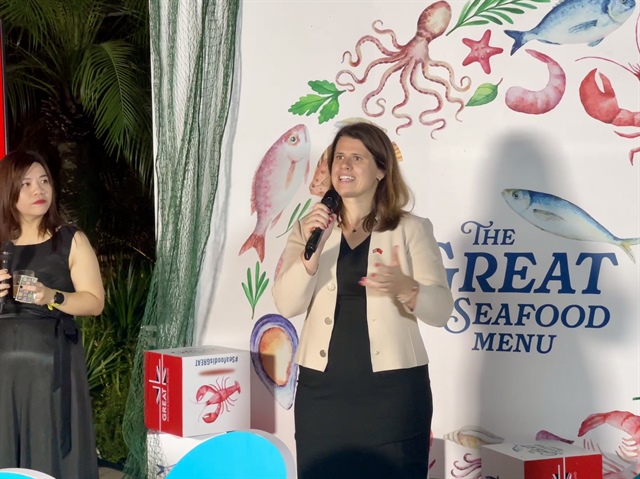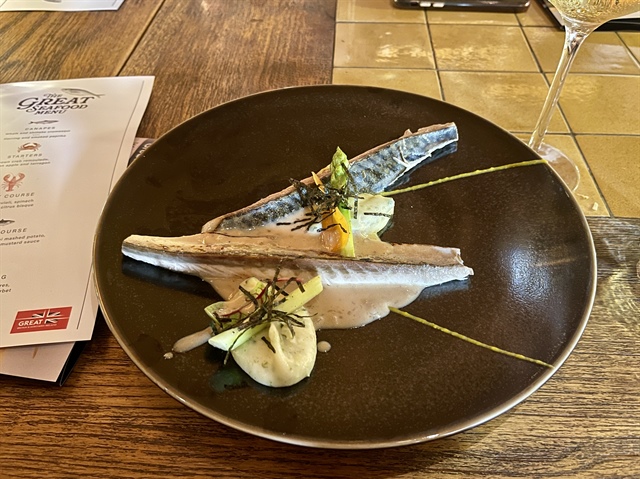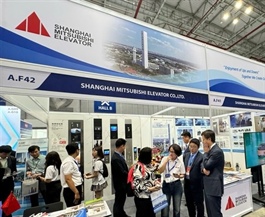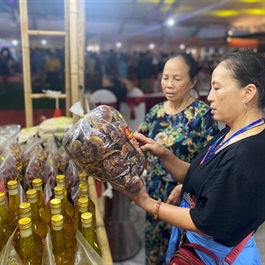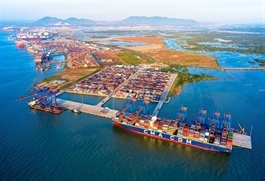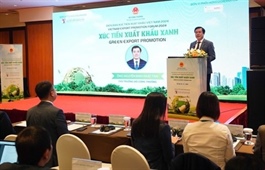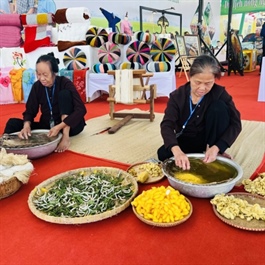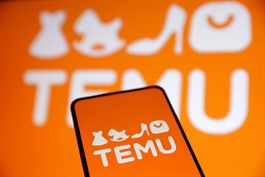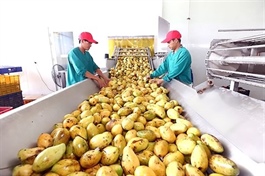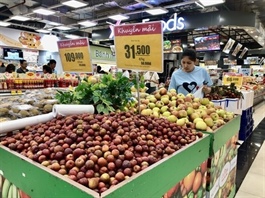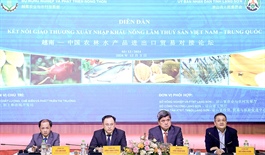UK eyes expanding seafood exports to Vietnam
UK eyes expanding seafood exports to Vietnam
“Vietnam is the largest consumer of seafood in Southeast Asia and the UK's third-largest seafood export market. This is an area where we are really keen to grow,” British Consul General in Ho Chi Minh City Alexandra Smith spoke at an event to promote UK seafood in Ho Chi Minh City this week.
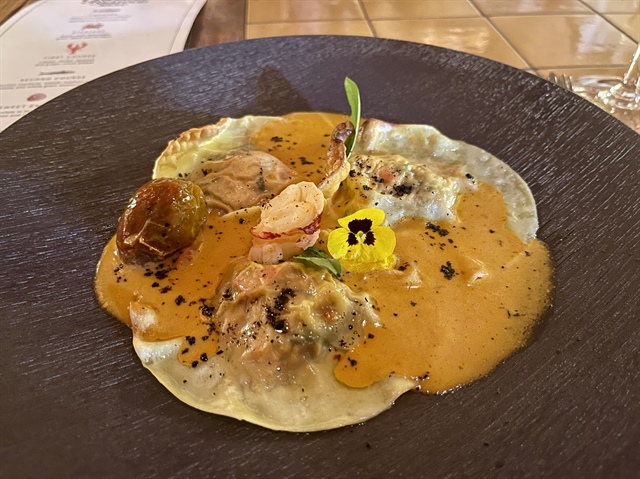
A dish featuring lobster ravioli, spinach and ginger citrus bisque at the UK Seafood Showcase, an event celebrating seafood from the UK, at the Clay Saigon restaurant in Ho Chi Minh City, December 3, 2024. Photo: Dong Nguyen / Tuoi Tre News |
At the UK Seafood Showcase, a dinner event celebrating seafood from the UK, the consul general emphasized that the UK and Vietnam have a very strong and close trade relationship.
On December 15, the UK will become a member of the Comprehensive and Progressive Trans-Pacific Partnership Agreement (CPTPP), which will bring some seafood tariffs down to zero, making it even cheaper for British seafood to make its way onto Vietnamese plates, she stated.
|
|
| British Consul General in Ho Chi Minh City Alexandra Smith speaks at the UK Seafood Showcase, an event celebrating seafood from the UK, at the Clay Saigon restaurant in Ho Chi Minh City, December 3, 2024. Photo: Dong Nguyen / Tuoi Tre News |
The diplomat also explained what makes seafood from the UK stand out.
“In the UK, fishing is at the heart of our heritage,” she said.
“The British Isles are blessed with cool, clean waters, which enables vast and different types of seafood to flourish and thrive, ready for catching and ready for eating.”
The UK is home to a wide variety of seafood, ranging from smoked salmon from Scotland, whelks from Whitley Bay, to lobster and crab from across the British Isles.
“The UK is also really proud to have sustainability at the heart of how we approach fishing,” she continued, mentioning the country’s global reputation for high-quality, sustainably fished products enjoyed by consumers worldwide.
In a video statement shown at the event, Minister of State at the Department for Environment, Food and Rural Affairs Daniel Zeichner called Vietnam an exciting, fast-growing economy with many British seafood exporters already engaged in the market.
“Bilateral trade between the UK and Vietnam has always been strong, particularly on seafood, where Vietnam supplied over £255 million [US$324.3 million] worth of seafood, according to the latest yearly figure,” he said.
The implementation of the UK-Vietnam Free Trade Agreement has seen the two sides’ bilateral trading relationship go from strength to strength, with exports growing substantially since 2019, he stated.
The minister added that thanks to new arrangements, many types of British seafood can now be imported into Vietnam tariff-free, and also noted that in December, the UK will formally join the CPTPP trade bloc, which Vietnam is party to.
“We look forward to strengthening our already thriving bilateral trading relationship through the implementation of further preferential tariff arrangements and more lenient provisions on customs arrangements and rules of origin,” he said.
Minister Zeichner took the chance to express his pride in the UK’s seafood, “which is known globally for its taste, quality, and rich heritage.”
“Our coastline is vibrant and vast, providing us with a wealth of species on offer for export to Vietnam, who we know are lovers of seafood,” he said.
“We are proud that the quality of our seafood has also been internationally recognized, with 16 British seafood products being awarded protected geographical origin status, highlighting their flavor and history.”
|
|
| A dish featuring torched mackerel, wasabi mashed potato, whisky and whole grain mustard sauce at the UK Seafood Showcase, an event celebrating seafood from the UK, at the Clay Saigon restaurant in Ho Chi Minh City, December 3, 2024. Photo: Dong Nguyen / Tuoi Tre News |
Sustainability a top priority
In his speech, Minister Zeichner also emphasized the sustainability of the industry, with sustainable fish stocks and fisheries in UK waters being a priority for the government.
“We use fisheries management plans to set out how to maintain or restore fish stock to sustainable levels, aiming to keep in line with the best available scientific advice to make sure that stocks are managed over the long term within sustainable limits,” he said.
In an interview with Tuoi Tre News at the event, Matthew Albun-Crouch, the UK’s Agriculture and Aquaculture Attaché to Vietnam, added that the UK has very strict regulations on the size of the fishing areas and the number of fishing boats that are allowed to be within certain limits.
The country is extremely strict on the age at which fish can be caught to protect the young fish and the young shellfish, ensuring that they can fully grow while minimizing the impact on the marine environment, he said.
The attaché believed that British seafood in Vietnam stands out because of its quality as the UK has applied some of the world's leading sustainability and food safety standards.
“We're very strict on regulating our fishermen as well,” he explained.
“We have frequent checks for all the fishermen and the stocks to ensure that every product that is exported from the UK overseas meets all those standards, so there's nothing that falls in between the cracks.”
British seafood has a broad spectrum of different products for Vietnamese consumers to enjoy, he said.
For instance, premium lobsters can be supplied to high-value restaurants and hotels while affordable products like whelks and mussels can be marketed toward everyday consumers in Vietnam.
“I've been in Vietnam for 18 months, and my experience is that the Vietnamese love their seafood. They also seem to love crustaceans and anything in a shell, so we already export a great deal of whelks,” he said.


